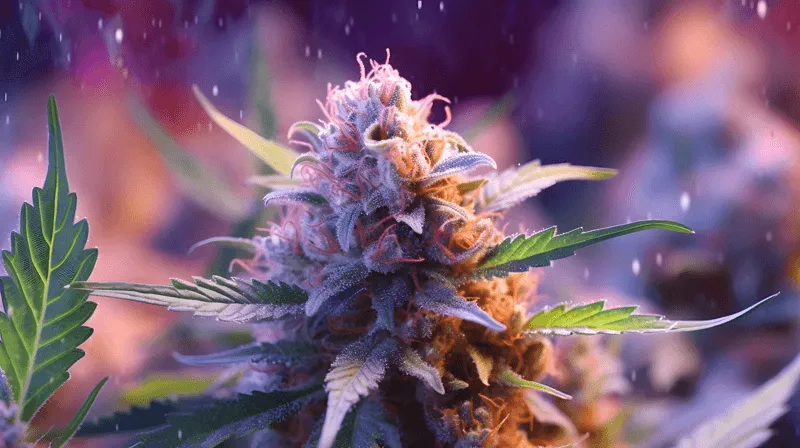
Research on cannabis is a broad and dynamic field. Other compounds obtained from cannabis plants are starting to get attention as CBD gains popularity. Among these, hexahydrocannabinol, or HHC, and Delta-8 have emerged as key rivals. However, what are them precisely, and how are they different from one other? Furthermore, what advantages could they provide? Let’s take a closer look at this cannabis puzzle.
Many gratitude Cannabis plants contain a trace quantity of delta-8 D8, also known as delta-8-tetrahydrocannabinol, a kind of cannabinoid. They are structurally close to delta-9-tetrahydrocannabinol, or THC, the primary psychoactive component of cannabis, despite their clear differences.
Table of contents
Important Details About Delta-8
Deciphering HHC
Disparities and Nuances in the Comparison of HHC and Delta-8
Benefits and Potential Applications
Conclusion
Important Details About Delta-8
1. gentler Psychoactive Effects: Delta-8 is said to provide a gentler experience than Delta-9, which can have significant psychoactive effects. This could make it simpler for some users to control.
2. Legal Status: In many jurisdictions, particularly when it comes to hemp-based products, delta-8 is categorised as a grey substance. This explains why its market attractiveness has recently increased.
3. Therapeutic Potential: Although further in-depth research is required, preliminary findings indicate that Delta-8 may have anti-nausea, anti-anxiety, and pain-relieving qualities.

Deciphering HHC
Another cannabis component that has gained interest is hexahydrocannabinol, or HHC. It’s crucial to keep in mind that HHC is a synthetic drug, meaning it wasn’t produced naturally but rather in a lab.
Primary Takeaways About HHC:
1. Synthetic Nature: Unlike Delta-8, which comes directly from the cannabis plant, HHC is created chemically. This raises concerns regarding its safety and purity but also makes it feasible to control its characteristics more accurately.
2. Potential Similarities to THC: HHC is believed to act in the body’s endocannabinoid system similarly to regular THC, despite structural differences between Delta-8 and Delta-9.1Research Gap: Compared to other cannabinoids, there is notably less research on HHC due to its synthetic composition. Its long-term consequences, advantages, and potential risks remain largely unknown.

Disparities and Nuances in the Comparison of HHC and Delta-8
Although Delta-8 and HHC both have distinctive qualities, they also stand out for different reasons:
1. Origin: Delta-8 is a naturally occurring cannabinoid, while HHC is synthesised in a laboratory.
2. Legal Environment: While local regulations may change, Delta-8’s legal position is frequently more permissive than HHC’s, which is subject to tougher limitations due to its synthetic nature.
3. Safety problems: Although Delta-8 is less common, there are worries about the purity of HHC, possible impurities, and long-term health consequences because it is synthetic.
4. Therapeutic Potential: Additional study has been conducted on Delta-8, which may have therapeutic implications, despite the fact that the benefits of HHC are currently purely theoretical.
Benefits and Potential Applications
Because of their distinctive qualities, researchers and consumers alike have become interested in Delta-8 and HHC. Here’s a quick rundown of some possible advantages:
Delta-8:
• Mood Enhancement: When compared to conventional THC, some users claim that Delta-8 offers a more upbeat and focused high.
• Pain reduction: According to preliminary research, Delta-8 may have analgesic qualities, which could provide some degree of pain reduction for specific pain conditions.
• Stimulation of Appetite: Like Delta-9, Delta-8 may also stimulate appetite, which may be advantageous for patients receiving appetite-suppressive medications.
HHC:
• HHC is a potential substitute for THC due to its interactions with the endocannabinoid system. However, it may have different effects or a distinct profile of negative effects.
• HHC’s synthetic nature offers researchers a unique opportunity to study the endocannabinoid system and develop new therapeutics.
Conclusion:
Cannabinoids have many qualities and benefits. Delta-8 and HHC are only two of the many cannabinoids being investigation for potential medicinal use.
Delta-8 has gained commercial and research recognition, whilst HHC remains a little-known institution with more questions than solutions. Delta-8 and HHC should be used with caution, just like any other cannabinoid or supplement. Make sure you understand everything there is to know about their characteristics, potential benefits, and legal status in your jurisdiction.
As research into cannabinoids progresses, the discovery of compounds such as delta-8, HHC, and others may pave the way for new medical interventions and wellness products.
While the cannabis industry is changing, it might be easier to navigate by being knowledgeable and getting advice from medical experts.
FAQs
At cannabis plants, delta-8 THC is a naturally occurring cannabinoid that is present at smaller concentrations than delta-9 THC. Its lower psychedelic qualities and possible medical benefits have drawn interest.
Despite structural similarities to THC Delta-8 and Delta-9, hexahydrocannabinol (THC) has a different set of effects. While Delta-8 is recognised for its slightly drunken effects, HHC is frequently said to provide a well-balanced relaxing and mildly euphoric effect.
Based on the jurisdiction, Delta-8 and HHC may or may not be legal. Currently, Delta-8 is in many jurisdictions with a more favourable legal standing. However, because of its associations and processing techniques, the legality of HHC is still debatable in some areas. Keeping up with local rules and regulations is crucial.
It is thought that HHC and delta-8 may provide a number of possible advantages, such as hunger stimulation, anxiety and stress reduction, and pain treatment. To completely comprehend and validate their therapeutic qualities, more research is necessary.
There are several ways to consume and use delta-8 and HHC, such as tinctures, foods, and vape cartridge. It’s critical to begin with a modest dose and increase it gradually as necessary, closely monitoring your body’s response. Furthermore, make sure you only purchase goods from respectable producers who place a high value on purity and quality.
While most individuals have good tolerance for delta-8 and HHC, others may experience negative side effects as red eyes, dry mouth, and fast heartbeat. It is essential that you see a healthcare professional before using these cannabinoids, especially if you are on medication or have any underlying medical conditions.
It is advised that you refrain from operating heavy machinery or driving after eating Delta-8 or HHC as these cannabinoids may impair judgement and motor skills. Put your own safety first and only engage in such activities when you are competent and completely aware of your surroundings.
Current research suggests that Delta-8 and HHC are less likely to cause addiction than Delta-9 THC. Though individual responses may vary, it’s crucial to monitor your consumption and get professional assistance if you have any concerns regarding dependence.







